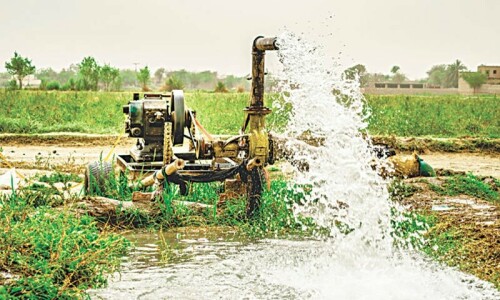THE ego-fuelled haste with which the Nandipur power project was hustled along towards completion has now yielded up its fruit.
The power plant remains idle despite massive cost overruns, and the government, which once touted the project as an emblem of its can-do credentials, is now calling for an audit of the scheme.
What makes the whole affair even more troubling is that it comes in the middle of a large spurt in power projects, many of them connected with the China Pakistan Economic Corridor, and which the government is similarly trying hard to own as emblems of its success.
Also read: Nandipur power plant failure: what needs to be probed?
The Nandipur fiasco has rightly cast a shadow over those as well, since any government that can botch up this project can make a mess of the others too.
One large CPEC project in Gadani has already been wound up because it ran the risk of becoming another example of failure, but on a far bigger scale. Given this context, it is imperative that the Nandipur fiasco be examined very closely and the right lessons be drawn from it.
An audit of the project’s finances is certainly in order, but perhaps an investigation into the massive cost overruns, including an $80m remobilisation advance for the contractor and a $30m tab for conversion to a different fuel, should also be carried out.
But it is also important to add that thus far there is little to no evidence of corruption or any other irregularity that would merit the use of the word ‘scam’.
The project has suffered from a wide range of governmental failures — incompetence, poor planning, haste, lack of coordination — but whether or not there has been any criminal irregularity has not yet been determined.
The NAB investigation into the project is very old, and its results are yet to be known, but its focus is also on the earlier phase when the project languished due to neglect by the previous government.
The political parties that are seeking to raise this issue in the next session of parliament ought to direct their fire towards demanding greater scrutiny of the cost overruns, and the sequence of decision-making that resulted in a series of reversals in crucial questions, such as the choice of fuel for the power plant during its construction stage.
Who made what decision and when? If evidence of wrongdoing surfaces after this, it should be pursued with vigour.
Published in Dawn, September 15th, 2015
On a mobile phone? Get the Dawn Mobile App: Apple Store | Google Play














































